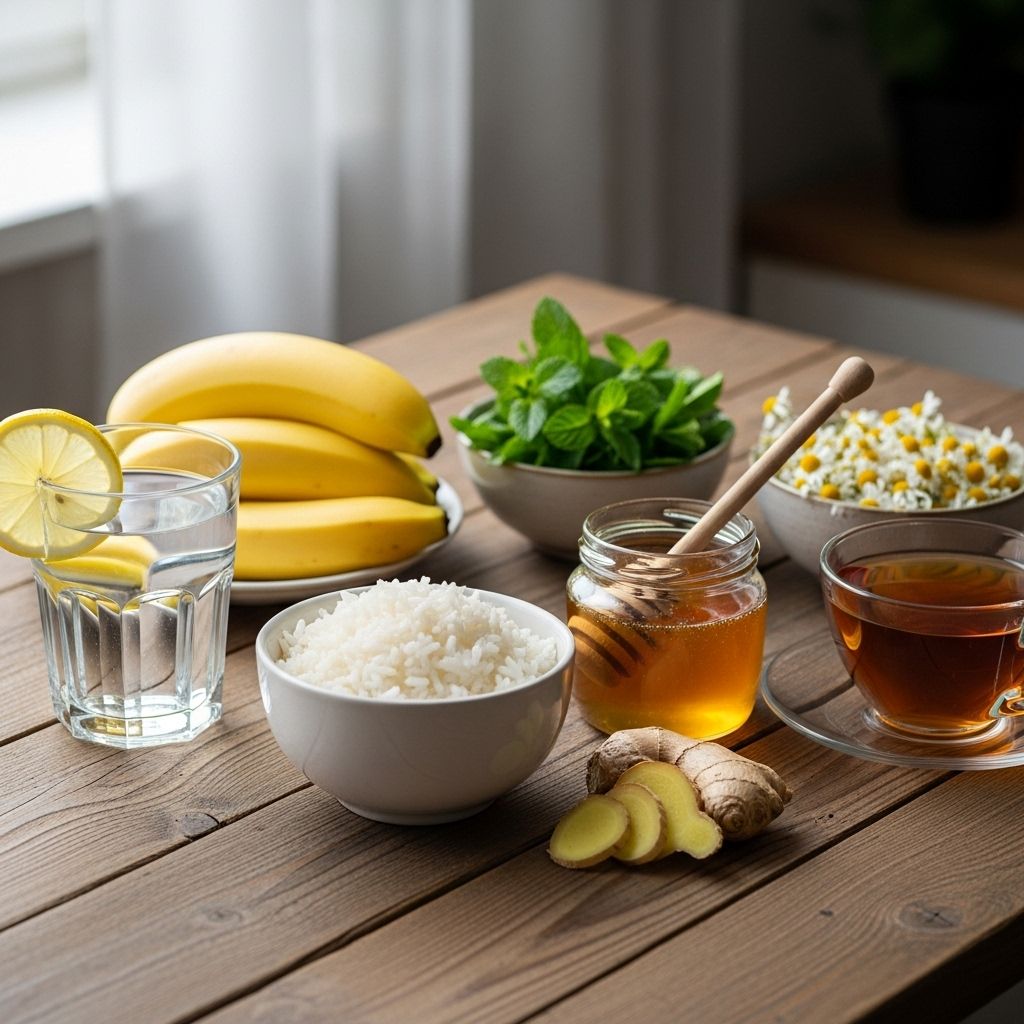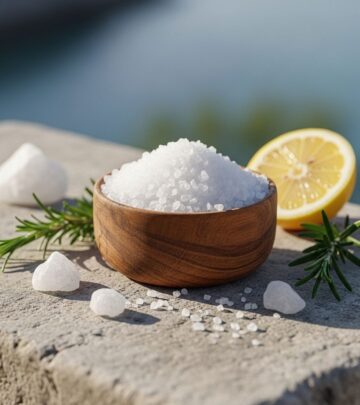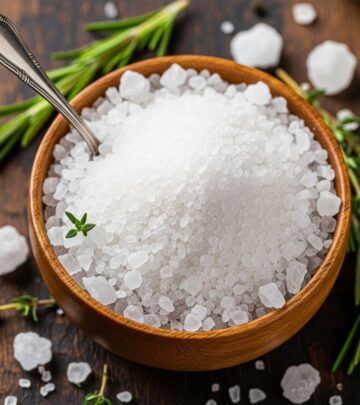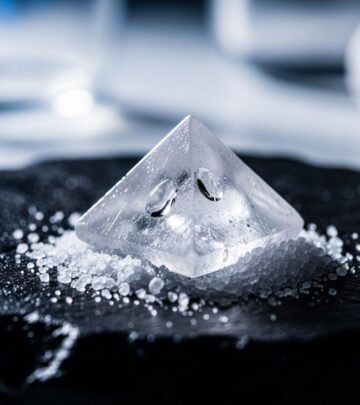10 Effective Home Remedies To Treat Diarrhea Naturally
Simple pantry staples offer gentle relief and support when your gut feels unsettled.

Diarrhea is a common digestive issue that affects individuals of all ages, characterized by frequent, loose, and watery stools. While most cases are mild and resolve on their own, diarrhea can cause dehydration, weakness, and discomfort. Fortunately, several effective home remedies and dietary modifications can help control symptoms and promote a quick recovery. This guide offers detailed insights into natural treatments, practical tips, and essential safety precautions for managing diarrhea at home.
Understanding Diarrhea
Diarrhea generally refers to having three or more loose or watery stools in a day. It may result from various causes, including infections, food intolerances, contaminated water, new medications, or underlying digestive conditions. While most cases are temporary, severe or prolonged diarrhea may indicate a more serious health issue and require medical attention.
Home Remedies To Relieve Diarrhea
1. Lemon Water
A traditional remedy for diarrhea, lemon water helps soothe the digestive tract, combat dehydration, and replenish lost electrolytes due to its vitamin C and mineral content.
- Ingredients: 1/2 lemon, 1 glass of water, a pinch of salt, 2 teaspoons sugar
- Instructions: Squeeze half a lemon into a glass of water, add salt and sugar, mix well, and drink.
- Frequency: Take sips every few minutes, especially after each loose stool.
2. Apple Cider Vinegar
Apple cider vinegar (ACV) has antimicrobial and anti-inflammatory properties that may help combat some pathogens causing diarrhea and provide relief from intestinal inflammation.
- Ingredients: 2 teaspoons apple cider vinegar, 1 glass water, honey (optional)
- Instructions: Stir vinegar into water, add honey if desired, and drink.
- Frequency: Up to 2-3 times daily until symptoms improve.
- Note: Use with caution if you have stomach ulcers or acid reflux.
3. Ginger Tea
Ginger is renowned for its anti-inflammatory and antimicrobial effects, helping reduce gut spasms, bloating, and discomfort associated with diarrhea.
- Ingredients: 1-inch fresh ginger root, 1 cup water, honey (optional)
- Instructions: Boil ginger in water for 5-7 minutes, strain, add honey, and drink warm.
- Frequency: Twice daily after meals.
4. Yogurt
Yogurt contains active probiotic cultures (such as Lactobacillus and Bifidobacterium) that restore the balance of healthy gut bacteria disrupted during diarrhea. This can help shorten episode duration and reduce recurrence.
- How to Use: Consume 1-2 bowls of plain, unsweetened yogurt daily.
- Tip: Avoid flavored or sweetened yogurt, which may aggravate symptoms.
5. Bananas
Bananas are rich in potassium and pectin (soluble fiber), aiding the absorption of fluids in the intestines and replenishing lost electrolytes.
- How to Use: Eat 1-2 ripe bananas per day as a snack or add to yogurt.
- Benefit: Especially helpful for children and older adults prone to dehydration.
6. Pomegranate
Pomegranate juice or seeds possess anti-inflammatory and antioxidant properties, helping to reduce intestinal inflammation, promote healing, and ease upset stomach symptoms.
- How to Use: Drink fresh pomegranate juice or consume seeds twice daily.
7. Fenugreek Seeds
Fenugreek seeds are high in mucilage, which bulk up stools, reduce intestinal irritation, and provide relief from abdominal discomfort.
- Ingredients: 1-2 teaspoons dried fenugreek seeds
- Instructions: Grind seeds into a fine powder, mix into water, and consume on an empty stomach.
- Frequency: Once daily for 2-3 days.
8. Honey
Honey demonstrates mild antimicrobial effects and soothes irritated digestive tissues. It can be mixed with warm water for gentle relief.
- Ingredients: 2 teaspoons raw honey, 1 cup warm water
- How to Use: Mix and drink twice daily.
- Note: Not suitable for children under 1 year due to risk of botulism.
9. Cumin Seeds
Cumin seeds can improve digestion, reduce bloating, and offer relief from stomach cramps linked to diarrhea.
- Ingredients: 1 teaspoon cumin seeds, 1 cup water
- Instructions: Boil seeds in water, strain, and drink once cooled.
- Frequency: Twice daily.
10. Rice Water
Rice water is a gentle, starchy drink that can bind stools and is especially effective for children or those with sensitive stomachs. It helps reduce the duration of diarrhea and is a time-tested remedy in many cultures.
- Ingredients: 1/2 glass rice water (strained from cooked rice)
- Instructions: After cooking rice in excess water, strain the liquid, let it cool, and drink after each loose motion.
- Frequency: 2-3 times a day or as needed.
User Experience: Several people report rapid relief after consuming rice water, with reduced pain and fewer bowel movements within an hour of intake.
Additional Natural Ingredients To Soothe The Gut
- Aloe vera juice – May relieve mild gastrointestinal symptoms and soothe inflammation.
- Psyllium husk – Acts as a stool bulking agent; consult your doctor before using with acute diarrhea.
- Slippery elm and marshmallow root – Traditionally used to ease gut irritation.
Dietary Tips For Managing Diarrhea
Your diet plays a crucial role in both the onset and resolution of diarrhea. Follow these dietary recommendations for a quicker recovery:
- Stay hydrated: Drink water, oral rehydration solutions, clear soups, or infused fluids to replace lost fluids and electrolytes.
- Eat small, frequent meals: Avoid large portions. Eat bland foods such as rice, bananas, applesauce, and toast (the “BRAT” diet).
- Include probiotics: Yogurt and fermented foods help restore gut flora balance.
- Avoid dairy (unless yogurt): Milk and cheeses may worsen symptoms, especially in lactose-sensitive individuals.
- Cut out spicy, fatty, or fried foods: These can aggravate the intestines and prolong recovery.
- Limit caffeine and alcohol: Both stimulate the intestines and can worsen diarrhea.
- Exclude raw fruits and vegetables: Unless peeled or thoroughly cooked, as fiber may further irritate your gut.
Hydration: The Critical Component
Frequent watery stools cause the body to lose fluids, sodium, potassium, and chloride. Replacing these is vital, especially for children and older adults at higher risk for dehydration. Signs of dehydration include excessive thirst, dry mouth, dark yellow urine, and dizziness. Severe dehydration can be dangerous and warrant immediate medical attention.
- Homemade oral rehydration solution (ORS): Mix 1 liter of water, 6 teaspoons sugar, and 1/2 teaspoon salt. Drink frequently.
- Use commercially available ORS packets as per instructions if available.
- Include clear broths, soups, and herbal teas for extra hydration and nutrients.
When To Seek Medical Help
Most mild cases of diarrhea resolve within a few days. However, see a doctor if you experience:
- High fever (above 102°F/39°C)
- Blood or pus in the stool
- Continuous vomiting
- Signs of severe dehydration (sunken eyes, unresponsiveness, minimal urine output)
- Symptoms lasting longer than 2-3 days despite home care
- Severe abdominal pain
Possible Side Effects & Precautions
- Apple cider vinegar may irritate the stomach lining in sensitive individuals, especially if consumed undiluted or in excess.
- Peppermint (essential oil) is not recommended during diarrhea as it may aggravate reflux.
- Some herbs and natural supplements can interact with medications or may not be suitable for children, pregnant women, or those with chronic diseases. Consult a healthcare provider if in doubt.
FAQs About Diarrhea & Home Remedies
Q: What causes diarrhea?
A: Causes include viral or bacterial infections, contaminated food or water, food intolerances, medications, or digestive disorders.
Q: Are home remedies effective for all types of diarrhea?
A: Home remedies can relieve mild, short-term cases. Persistent, severe, or bloody diarrhea may require medical evaluation and treatment.
Q: Can I give these remedies to children?
A: Many remedies (rice water, banana, oral rehydration) are safe for children, but avoid honey in infants under one year. Consult a doctor if symptoms are severe or last more than 24 hours in young children.
Q: What foods should I avoid during diarrhea?
A: Dairy products (except yogurt), spicy foods, fried/fatty foods, caffeine, fructose-rich foods (like some fruit juices), and alcohol should be avoided until symptoms resolve.
Q: How soon should I expect relief?
A: Most mild cases resolve within 1-3 days using home remedies and proper hydration.
Key Takeaways For Natural Diarrhea Relief
- Act quickly to stay hydrated with water and ORS after each loose motion.
- Focus on bland, easily digestible foods prepared with minimal oil or spices.
- Try natural remedies like lemon water, yogurt, fenugreek, or rice water for comfort.
- Monitor symptoms and seek medical advice if warning signs appear.
Disclaimer: This content offers general information only and should not be considered medical advice. Consult a healthcare professional for persistent, severe, or worrisome symptoms.
References
- https://www.stylecraze.com/articles/home-remedies-to-get-rid-of-diarrhoea/
- https://www.medicalnewstoday.com/articles/324424
- https://apollodiagnostics.in/blogs/10-effective-home-remedies-for-loose-motions-199
- https://www.contemporarypediatrics.com/view/diarrhea-home-remedies-help-rehydrate-and-soothe-gut
- https://www.stylecraze.com/articles/brat-diet/
- https://www.youtube.com/stylecraze
- https://www.youtube.com/watch?v=3t1N3O9PMDk
Read full bio of medha deb












